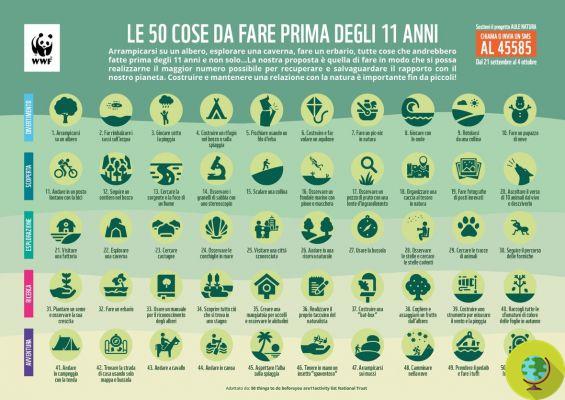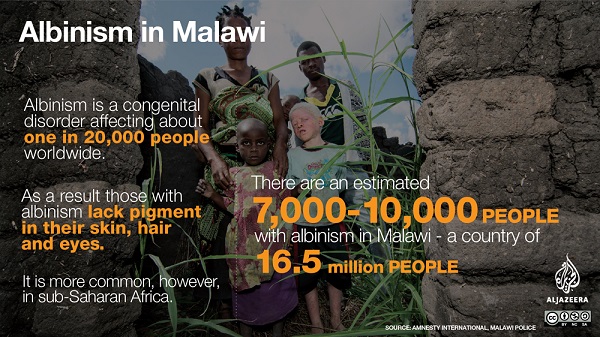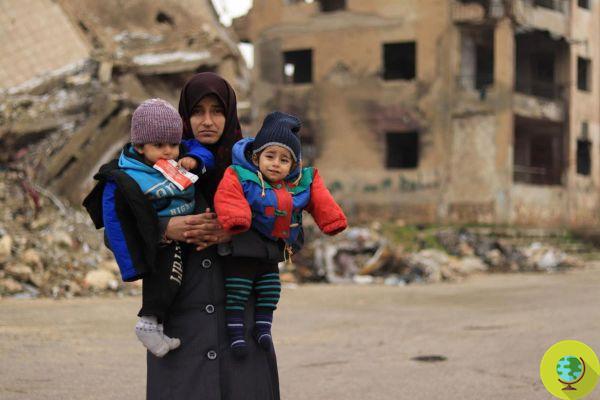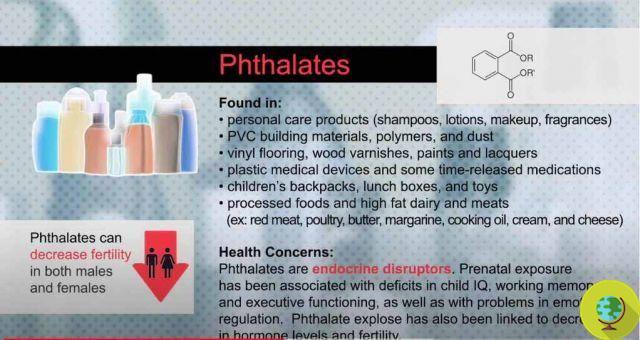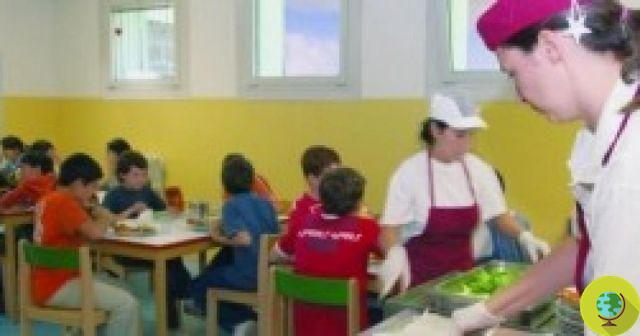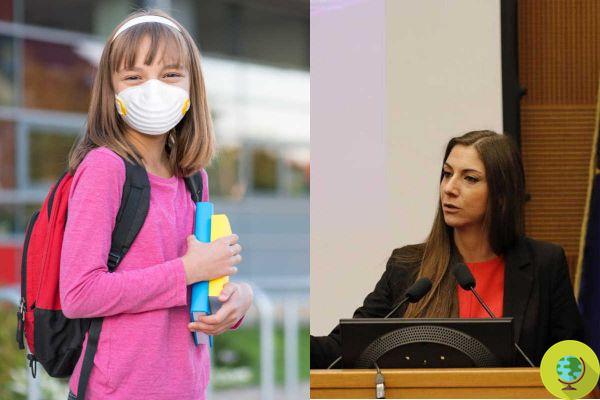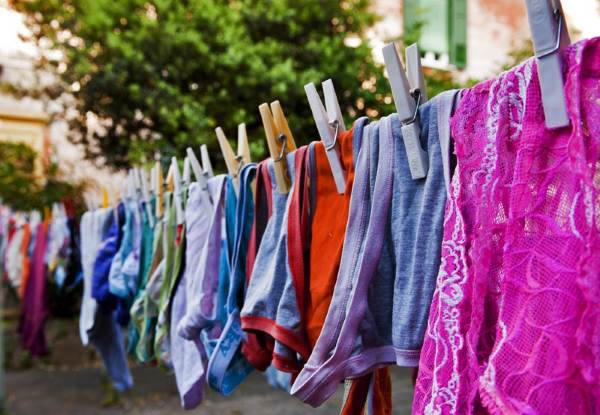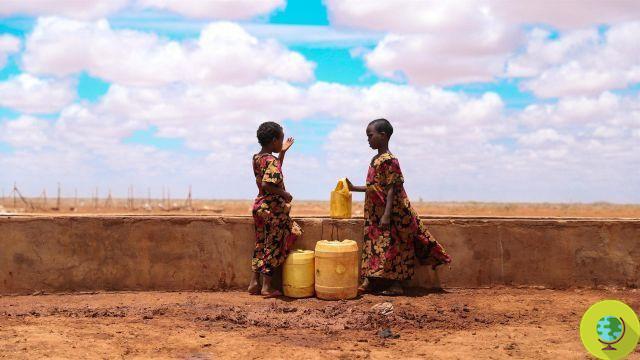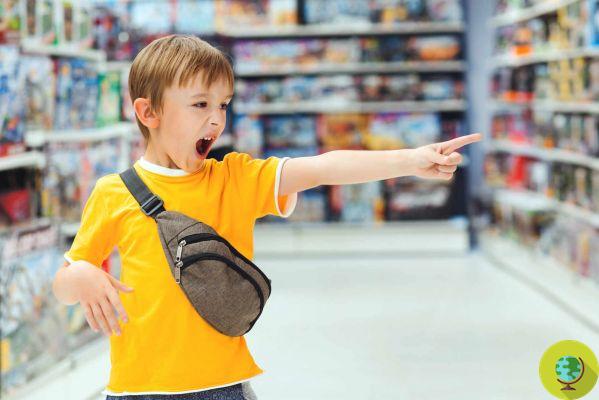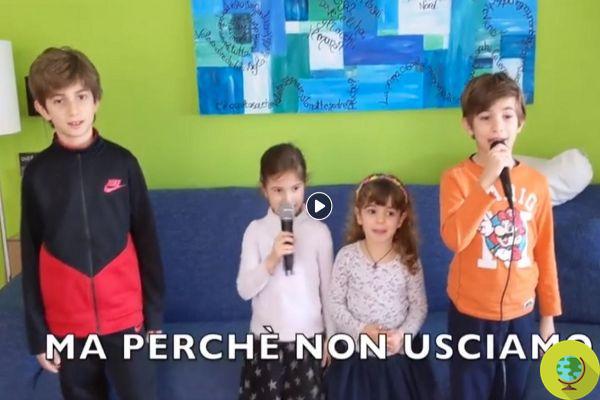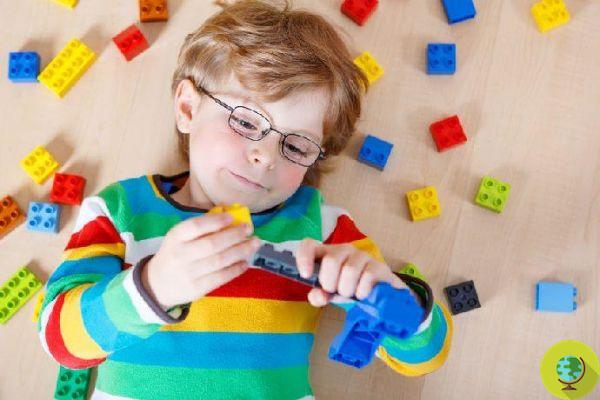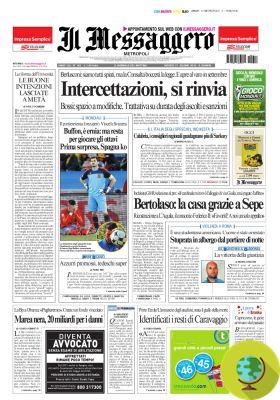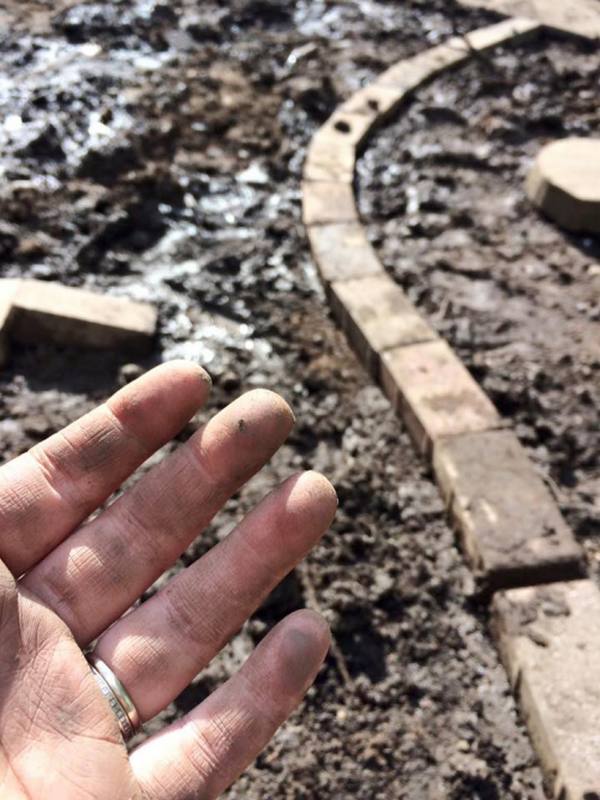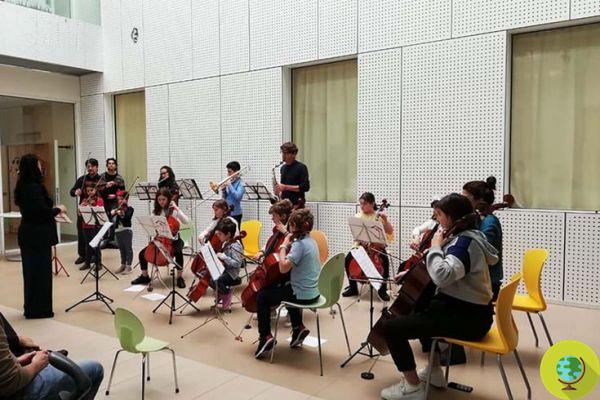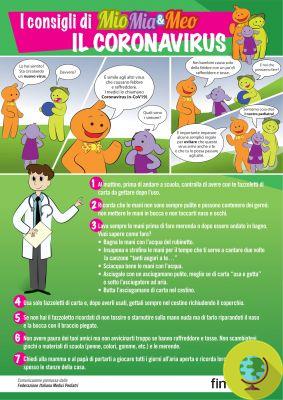
How to explain the coronavirus to children and the rules to be taught for preventive purposes according to the directives of the Ministry of Health.
Don't store avocado like this: it's dangerousIl coronavirus it is a bit, at this moment, like the Babau (or the big bad wolf) who comes forward in the bedroom when everything is dark, frightening because he is invisible and unknown. Babau from whom you do not know what to expect, which you imagine as potentially lethal but which often disappears before turning on the light.
Exists? Does not exist? The Babau, apparently, is only the fruit of the imagination, the coronavirus instead, despite being invisible to the human eye, really exists. But what does it do? Is it bad? Harmless? What do the grown-ups say about it, they who are usually not afraid of monsters?
The adults, or at least some of them, are afraid this time and it is normal for them to feel this emotion because, in some ways, it is healthy. Something unknown, potentially threatening to our health, touches us to the heart. It is normal to feel fear but it is up to us to exploit it in a constructive way, avoiding that it takes over common sense and using it to feed a sense of responsibility that we all have towards each other, as well as towards ourselves.
La responsibility it is important, you learn it growing up, you often learn it even making mistakes, it is not something that can be clearly defined, but it should have to do, among other things, with respect for others. In this specific case, each of us has a responsibility to act in everyone's interest, relying on the advice of the most authoritative people on the subject, and therefore on doctors and scientists. Who do not have the truth in their pockets but who, if nothing else, have not improvised themselves as such.
The sense of responsibility towards themselves and towards the community induces adults to adopt what are called preventive measures, simple recommendations to be put into practice in everyday life to avoid contagion.
Why should it be avoided? Because this coronavirus is still unknown and therefore, the grown-ups do not know how to cure it. If for the normal flu there are ad hoc medicines, for the coronavirus flu, we are talking about flu because the symptoms are usually similar with a lot of fever, cold and cough, there is still no remedy. So the best thing to do is to prevent it from spreading. In this way the disease is curbed at least a little and is less scary.
Furthermore, for children there is good news because, apparently, they are able to resist the virus which in any case, and this applies to everyone, has a very low mortality. The Bambino Gesù Pediatric Hospital also specifies it, which declares:
“Children appear to be less affected by the infection and show a benign pattern than adults, although the underlying mechanisms are not yet clear. However, we know that Coronaviruses are the most frequent cause of colds and children repeatedly face coronavirus infections: it is possible that the immune response to recent Coronavirus infections will help children to better defend themselves even from the new Coronavirus. Furthermore, children's immune systems may be able to respond better to infection because they are more reactive. "
Before illustrating the rules to teach the little ones, we want to add that they perceive our agitation and that it is better not to worry them, panicking. As stated, fear is natural, but it is important to learn to manage it and make it constructive, it also serves as an example for them. Therefore, let us not allow them to take over, making us victims of exaggerated alarmisms, which are useless and dangerous both for us and for our children. Let's consider it for what it is, an "alarm" that should not annihilate us but help us to face the situation in the most balanced way possible.
The rules to be taught
With regard to preventive measures, which are at the moment the most important thing for both adults and children, here is the list of rules to be taught to children based on the information provided by the Ministry of Health:
- wash your hands frequently with soap for at least 40-60 seconds, helping them to pass it well under and over your hands, and if you are away from home, and there is no possibility to do so, wash them with special sanitizers. Having one in your pocket doesn't hurt! Here you will find all the detailed information on how to do it correctly;
- sneezing or coughing into a handkerchief or with the elbow bent, so that the drops do not reach other people. Because the virus is transmitted above all in this way! The handkerchiefs are then thrown into a closed basket, then you wash your hands again, which is the most important thing.
- take off your shoes and take off your dirty clothes upon returning home.
That said, don't worry too much, viruses have always existed and will always exist, and we will find a solution to stem the damage. Meanwhile let us help each other adopting the measures recommended by experts, it is up to all of us to be responsible, from an early age, without becoming alarmist.
SOURCES: Bambino Gesù Pediatric Hospital
You might also like:
- Codogno, the country quarantined for the Coronavirus
- Coronaviruses last up to 9 days on metal, wood and other surfaces, but are easily disinfectable
- Coronavirus psychosis: alarmism runs on social networks and whatsapp




